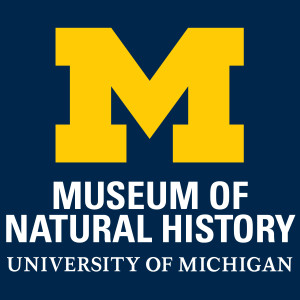
Episodes

Wednesday Dec 18, 2019
Science Café: Postcards from the Anthropocene
Wednesday Dec 18, 2019
Wednesday Dec 18, 2019
Human beings have changed Earth so extensively that geologists now propose renaming our current epoch as the Anthropocene—the era defined by people. Human influences are apparent in the shape of landscapes, the extent of biodiversity, ocean chemistry, and our climate. We will explore the history of human influence on Earth and the ideas driving the concept of the Age of Humans, taking time to discuss consequences and implications for our future world.
- Julia Cole, U-M Department of Earth and Environmental Sciences
- Naomi Levin, U-M Department of Earth and Environmental Sciences
For more information on future Science Cafes, please visit our website.

Wednesday Dec 18, 2019
Science Café: An Archaeology of Migration
Wednesday Dec 18, 2019
Wednesday Dec 18, 2019
What are the stories of contemporary Latin American migration, and how do we uncover them? What can these stories tell us about borders, their impact, and the struggles of many families to find a new life? How can such stories inform policy and/or political action?
- Jason De Leon, U-M Department of Anthropology
For more information on future Science Cafes, please visit our website.

Wednesday Dec 18, 2019
Science Café: What Cost, Basic Research?
Wednesday Dec 18, 2019
Wednesday Dec 18, 2019
Basic science research seeks to improve our understanding of the world, without any direct, obvious application. Much of it is funded by government grants, including those from the National Science Foundation. That funding may soon face cuts. A discussion on how much we spend on such research, what the rationale is, and what the implications of such cuts might be.
- Meghan Duffy, Associate Professor of Ecology and Evolutionary Biology
- Kristin Koutmou, Assistant Professor, Department of Chemistry
For more information on future Science Cafes, please visit our website.

Wednesday Dec 18, 2019
Science Café: Oil and Soil: The Forces of Climate Change
Wednesday Dec 18, 2019
Wednesday Dec 18, 2019
A discussion on the politics of oil, water, and food production and how they are deeply intertwined with human-caused climate change and political upheaval, especially in the Middle East.
- Jennifer Blesh, Assistant Professor of Environment and Sustainability, U-M School for Environment and Sustainability
- Juan Cole, Professor of History and Director for U-M Center for Middle Eastern and North African Studies
Sponsored by Science for the People and MC²: Michigan & the Climate Crisis which is presented in conjunction with the Bicentennial LSA Theme Semester.
For more information on future Science Cafes, please visit our website.

Wednesday Dec 18, 2019
Lecture: The Human Era: Living in the Anthropocene
Wednesday Dec 18, 2019
Wednesday Dec 18, 2019
Today's geologic era—the Anthropocene—is dominated by human activity. In this talk, Ben van der Pluijm explored the impacts of a growing human population and our increasing needs for resources, such as food, water and energy, and solutions toward a thriving human society in this new era.
- Ben van der Pluijm, B.R. Clark Collegiate Professor, U-M Department of Earth and Environmental Sciences
For more information on future Science Cafes, please visit our website.

Wednesday Dec 18, 2019
Science Café: Safeguarding Science: Expanding Access to Public Data
Wednesday Dec 18, 2019
Wednesday Dec 18, 2019
A discussion with U-M faculty and librarians participating in the national DataRefuge project, which looks to preserve, organize, and increase access to publicly-funded research data.
- Jake Carlson, Research Data Services Manager, U-M Library
- Paul Edwards, Professor of Information, School of Information and Professor of History, College of Literature, Science, and the Arts
- Catherine Morse, Government Information, Law and Political Science Librarian
- Justin Schell, Director, Shapiro Design Lab, U-M Library
For more information on future Science Cafes, please visit our website.

Wednesday Dec 18, 2019
Science Café: Can Nutrition, Stress, and Environmental Exposures Change Your DNA?
Wednesday Dec 18, 2019
Wednesday Dec 18, 2019
A discussion on the biological effects of past nutrition, stress, and toxicant exposures on our health and well-being. Are these changes heritable? Can diet and exercise protect our DNA?
- Kelly Bakulski and Dana Dolinoy of the U-M School of Public Health
- Srijan Sen of the Department of Psychiatry at Michigan Medicine
For more information on future Science Cafes, please visit our website.

Wednesday Dec 18, 2019
Science Café: Ancient Climates, Future Climates: What Can the Deep Past Tell Us?
Wednesday Dec 18, 2019
Wednesday Dec 18, 2019
A discussion on how the Earth's climate has changed many times, and the mechanisms of these changes may shed light on what we can expect in the future.
- Chris Poulsen, Professor and Chair of Earth and Environmental Sciences
- Nathan Sheldon, Associate Professor Earth and Environmental Sciences, Associate Director of the Program in the Environment
For more information on future Science Cafes, please visit our website.

Wednesday Dec 18, 2019
Science Café: Has Particle Physics Fizzled?
Wednesday Dec 18, 2019
Wednesday Dec 18, 2019
In 2012, physicists at large particle accelerators such as the Large Hadron Collider (LHC) found evidence of the Higgs boson, long predicted by the Standard Model in physics. But since then, they have yet to find evidence of other predicted particles.
- Dante Amidei, U-M Professor of Physics
- Aaron Pierce, U-M Professor of Physics and Director of the Michigan Center for Theoretical Physics
For more information on future Science Cafes, please visit our website.

Wednesday Dec 18, 2019
Science Café: The Bristle Mammoth Discovery
Wednesday Dec 18, 2019
Wednesday Dec 18, 2019
In the fall of 2015, a farmer near Chelsea discovered part of a mammoth skeleton and donated it to U-M. U-M scientists discussed the excavation and early research on the Bristle Mammoth -- named for Jim and Melody Bristle on whose land it was found.
- Professor Daniel C. Fisher, Director of the U-M Museum of Paleontology
- Adam Rountrey, Collection Manager for Vertebrate Fossils, U-M Museum of Paleontology
For more information on future Science Cafes, please visit our website.
